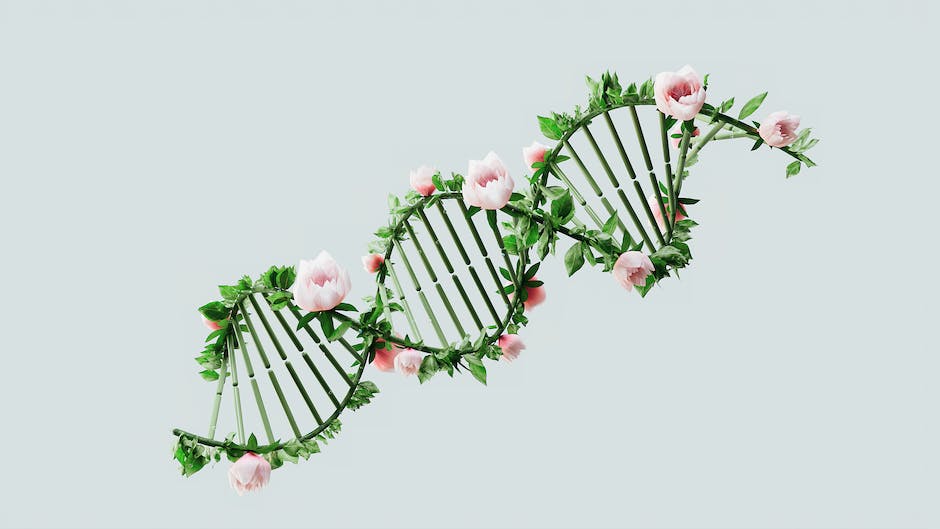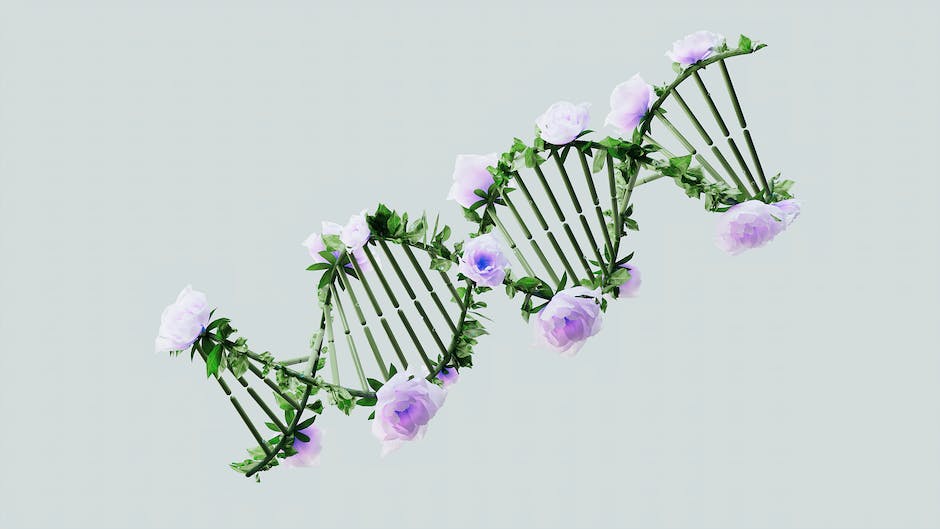Genetics plays a significant role in the complexity of Autism Spectrum Disorder (ASD), making the possibility of prenatal testing a predominant topic of interest in the medical field and among prospective parents. This discussion not only spans the scientific realm, but it also intrudes upon ethical and social dimensions, necessitating a comprehensive understanding of the subject. Our journey to explore this topic will travel through the meandrous paths of ASD background, the intricacies of genetic testing, specificities of prenatal tests for autism, the challenges of interpreting these results, and finally, the lived experiences of families and insights from experts.
Basics of Autism
Basics of Autism
Autism Spectrum Disorder (ASD) is a complex, neurological disorder that affects behavior, social interaction, learning, and communication abilities. ASD comprises various conditions characterized by challenges with repetitive behaviors, nonverbal communication, and social skills, but it also can involve unique strengths and differences. The term “spectrum” reflects the wide variation in challenges and strengths possessed by each person with autism.
According to the Center for Disease Control and Prevention, ASD affects 1 in 54 children in the U.S. Its symptoms often appear in the first three years of life, but the disorder can be diagnosed at any age. It has been found to affect all ethnic, racial, and socioeconomic groups and is about four times more common in boys than in girls.
Role of Genetics in Autism
Genetics plays a significant role in the development of Autism Spectrum Disorder, with several hundred different genes suspected of being involved. Studies of twins reveal that autism is highly heritable, as if one identical twin is affected, the other is also often affected. Mutations in certain genes have been linked with ASD, but it is important to note that no one gene mutation is responsible for all cases of autism. Instead, experts believe it is the interaction of multiple genes that contributes to the development of the disorder.
Despite the strong genetic component, environmental factors, including maternal health and conditions during pregnancy, could also contribute to a higher risk of autism. These factors could include exposure to certain toxins or infections or complications during birth, underscoring the complexity of the causes of autism and suggesting it is influenced by a combination of genetic and environmental factors.
Decoding Pregnancy Genetics: A Peek Into Autism Test
Recent advancements in genetic research have opened up the conversation around prenatal testing for autism. This involves an analysis of the fetus’s DNA while the baby is still in the womb, looking for distinctive genetic changes associated with Autism Spectrum Disorder (ASD). At present, it’s essential to understand that while this type of testing is promising, its potential is somewhat constrained. This is largely because our knowledge about the genetic underpinnings of autism is still unfolding, and these tests cannot yet declare a definitive diagnosis.
Pregnant women are conventionally offered genetic tests including amniocentesis or chorionic villus sampling (CVS), which can detect chromosomal irregularities linked to a higher risk of ASD. However, tracing such abnormalities in the genome does not necessarily assure the child will develop autism.
Nevertheless, genetic testing plays a vital role in diagnosing certain syndromic types of autism, which is when autism is accompanied by other symptom clusters. For example, specific genes have been identified to be associated with Rett syndrome and Fragile X syndrome, both of which exhibit autism-like symptoms. Prenatal genetic testing can help identify these specific disorders, but it cannot guarantee the prediction of autism.
Considering the intricate complexity of ASD, as well as the delicate balance between genetic and environmental aspects contributing to its occurrence, it’s highly suggested that individuals seek professional genetic counseling. Such counseling can elucidate the advantages and limitations of testing and aid in accurately interpreting test results, thereby assisting in planning and preparing for the potential obstacles and delights of raising a child with ASD.

Introduction to Genetic Testing
From Genes to Disorders: Understanding Genetic Testing
At its very core, genetic testing stands as a groundbreaking biotechnological method that identifies alterations or mutations in chromosomes, genes, or proteins. This process involves analyzing a person’s DNA, typically obtained through a blood or saliva sample. The goal is to identify any genetic conditions or potential illnesses at their earliest stages, even before symptoms appear. Genetic testing accommodates various subtypes, each with its unique applications and limitations.
Types of Genetic Testing: Their Uses and Limitations
The variety of genetic tests encompasses diagnostic testing, predictive and pre-symptomatic genetic tests, carrier testing, prenatal testing, newborn screening, and pharmacogenomic testing. Each type has distinct purposes and implications for decision-making or devising treatment plans. However, it’s crucial to remember that no test is entirely reliable. Genetic tests provide a risk assessment rather than absolute certainty, and the possibility of incorrect or ambiguous results always exists.
Pregnancy Genetic Test for Autism
Pregnancy genetic testing for autism, specifically prenatal testing, examines the fetus’s DNA for possible autism spectrum disorder (ASD). This kind of testing uses samples from amniotic fluid or cells from the placenta to detect genetic mutations associated with ASD. However, since autism is a complex disorder often related to both genetic and environmental factors, a single test cannot definitively predict autism. Although some genetic markers of autism are well-known, the existence of these markers does not guarantee the condition’s onset.
Ethical Concerns in Genetic Testing
There are numerous ethical issues associated with genetic testing, especially relating to pregnancy. These include matters of consent, privacy, and potential discrimination based on the test results. The anticipation and management of risk information can lead to increased anxiety and stress. Furthermore, the use of genetic information could potentially lead to stigmatization or discrimination in various societal aspects such as employment or insurance access.
Common Concerns about Genetic Testing for Autism
When considering pregnancy genetic testing for autism, specific concerns may arise. Foremost among these are potential false positives or negatives. Some individuals may wrongly believe they are free of risk if they receive a negative test result or become unnecessarily anxious if the result is positive. It’s also important to consider that current genetic testing can only identify a percentage (not all) of autism cases linked to genetic mutations. The genetic cause remains unknown for many individuals with autism.
Choosing to undergo pregnancy genetic testing for a potential diagnosis of autism is a complicated decision that involves consideration of multiple factors. Acquiring insight about the possibility of autism can help parents mentally prepare themselves and open doors to early intervention strategies which could greatly benefit the child. Yet, before making a decision, it’s crucial to familiarize oneself with the limitations and ethical considerations intertwined with such testing procedures.

Pregnancy Genetic Test for Autism
Digging Deeper Into Pregnancy Genetic Testing for Autism
Pregnancy genetic testing for Autism Spectrum Disorder (ASD) usually includes prenatal screenings and sophisticated diagnostic tests. The prenatal screenings primarily measure the probability of a fetus having ASD, whereas diagnostic tests yield more precise results. Routine prenatal screenings may include blood tests and ultrasounds, while diagnostic testing might involve advanced procedures, such as amniocentesis and Chronic Villus Sampling (CVS).
Usually, screening tests are conducted during the initial two trimesters. They draw upon the genetic material present in a mother’s blood to detect potential abnormalities. However, it is key to understand that these tests merely estimate the risk of Autism, but do not confirm the disorder itself.
A standard diagnostic test, known as amniocentesis, extracts a tiny amount of the amniotic fluid that surrounds the unborn baby. This test is usually conducted during the second trimester, specifically, between week 16 and 20. Another procedure, CVS, is performed between weeks 10 and 13 of the pregnancy and involves taking a small cluster of cells from the placenta. The collected samples from both procedures are then used to scrutinize the baby’s chromosomal patterns.
Accuracy of Autism Genetic Test
The accuracy of these tests primarily depends on the type of genetic alteration being tested. For known genetic mutations associated with Autism, like Fragile X syndrome or certain chromosomal disorders, the test can be highly accurate. However, it’s crucial to understand that most cases of Autism have unknown genetic mutations, significantly reducing the accuracy of predictive testing.
Benefits and Risks of Pregnancy Genetic Test for Autism
The principal benefit of prenatal genetic testing for Autism is the provision of useful information that can help prepare parents and healthcare professionals for the needs of the child after birth. Early intervention in Autism-related cases has been shown to improve developmental outcomes. Of course, another accompanying advantage is the option to make informed decisions regarding the pregnancy.
Nevertheless, these tests are not devoid of downsides. They carry potential risks, including miscarriage, although the chances are relatively low. Another notable risk is the anxiety and worry that may accompany an increased risk result, especially considering that a positive screening test does not necessarily confirm Autism.
Understanding Pregnancy Genetic Test for Autism and Who Should Consider it
Pregnancy genetic testing for Autism Spectrum Disorder (ASD), a complex condition often characterized by difficulties with social interactions, repetitive behaviors, and communication disparities, can be an option for any pregnant individual. However, certain factors may make it an especially mindful consideration. Those with a family history of ASD, older parents, or those identified with other risk factors could find it potentially beneficial. Ideally, these tests are performed during the first and second trimester. Test frameworks like amniocentesis or chorionic villus sampling (CVS) are generally performed later in the first trimester, and into the second trimester.
It’s crucial that any decision to proceed with a genetic test for autism is made after thorough conversations with healthcare providers. Individuals must ensure they’re well-informed about their risk factors, the possible testing procedures, and potential outcomes.

Interpreting the Results and Decision Making
Deciphering the Outcomes of an Autism Pregnancy Genetic Test
Interpretation of results from an autism pregnancy genetic test can be nuanced, mostly attributable to the complex nature of ASD. The test primarily scans for genetic markers or signs that may increase the likelihood of autism in a child. It’s important to remember, however, this is not a definitive diagnostic tool—it’s rather an assessment of risk. Thus, a positive test means there’s a higher-than-average chance of the child developing autism, but it’s not a certainty. Conversely, a negative result doesn’t completely negate the possibility of autism either. It’s about understanding risk levels, not guaranteed outcomes.
The Possibility of False Positives or Negatives
With any genetic testing, it’s essential to understand the prospect of false positives or negatives. A false positive indicates a high risk of autism when in fact, there are none; conversely, a false negative suggests no autism risk when there may be one present. The test’s accuracy depends on several factors, including the quality of the lab processing the result and the nature of the genetic markers analyzed. It’s important to discuss these potential discrepancies with a genetic counselor or healthcare provider to understand the testing’s reliability and implications.
How Test Results Influence Pregnancy Decision-Making
Knowing the prenatal genetic test results can significantly impact the decision-making process throughout the pregnancy. Parents-to-be who get a high-risk result may wish to prepare for having a child on the autism spectrum. This could include researching resources and therapies, considering changes in work schedules or finances, and creating a support system. For some, knowing about the possibility of an autism diagnosis before the child is born could provide valuable time to adjust and plan.
However, a positive test result could also lead to difficult decisions regarding the continuation of the pregnancy. It’s essential that parents-to-be consult with medical professionals and support networks to absorb the results and whatever decisions they may entail.
The Potential Impact of Prenatal Genetic Testing for Autism
Understanding the probability of your child being diagnosed with autism before their birth can have a significant influence on the family’s long-term planning and preparation. The choice to share this information with loved ones is personal, and is contingent on factors such as anticipated levels of support and the potential for creating additional stress.
Having prior knowledge of a future child’s potential autism enables parents and other family members to make necessary adjustments to their household routines, financial planning, and overall expectations. This foreknowledge can facilitate proactive efforts to create an encouraging and accommodating environment for the child, encompassing therapy arrangements, educational support, and ensuring every opportunity for development and happiness is available.

Perspectives from Experts and Affected Families
Understanding Prenatal Genetic Testing for Autism from a Medical Standpoint
Prenatal genetic testing for autism is gaining traction, with many in the medical community emphasizing its role in early detection of risk factors. The results of such testing do not definitively establish if a child will develop autism, rather, they indicate the presence of certain genetic factors that may increase the risk. The procedure typically involves screening specific genes for variations or mutations commonly linked with autism, such as the CHD8 and NRXN1 genes.
The testing procedure can often be performed using non-invasive blood tests, referred to as cell-free DNA tests. These tests examine the fetal DNA circulating in the mother’s blood. Dr. Alison Brooks, a renowned geneticist at Johns Hopkins University, highlights the extensive potential benefits of prenatal autism testing. She explicates, “This isn’t about certifying a diagnosis of autism, but about pinpointing possible risk. It aids families in anticipating and addressing the unique needs of the child.”
Experiences and Choices: Families Grappling with the Decision to Test
Pregnant couples can find the decision about whether or not to undergo prenatal genetic testing for autism very complex. Some couples, like the Johnsons from Chicago, firmly believe in the value of this testing. Their eldest son was diagnosed with autism, so when expecting their second child, they decided to take the test. Mrs. Johnson explained that the aim was not to eliminate the chance of having a child with autism, but to be prepared and proactive in providing necessary early interventions.
On the other hand, some families, like the Smiths from Seattle, opt not to undergo genetic testing. They had their first child diagnosed with Autism Spectrum Disorder at 3 years old and during their second pregnancy, they chose not to take the test. Mrs. Smith expressed, “The test wouldn’t change anything for us. We’d love our baby regardless of an autism diagnosis.”
The Ethical Dilemmas: Venturing into Uncharted Territory
Medical experts and ethicists often debate the ethical implications surrounding prenatal genetic testing for autism. One significant point of contention is the potential for these tests to be used in a discriminatory manner. Amidst concerns over prenatal discrimination and the right to life, ethicist Dr. Sally Haslanger argues, “We have to remember the value of diversity, including neurodiversity. Autism is a spectrum. An autism diagnosis doesn’t determine the quality or worth of a life.”
Overall, the decision to undergo prenatal genetic testing for autism remains a deeply personal one, influenced by a range of factors, including personal, medical, and ethical considerations.

Indeed, prenatal genetic testing for autism is a multidimensional issue, with layers of medical, ethical, and personal factors to consider. The information herein provided illuminates not only the scientific aspects but also the human implications of engaging in such testing. It is our hope that this understanding aids in decision-making during pregnancy and beyond, and instills respect for the uniqueness reflected in the autism spectrum. Remember, the test does not predict an individual’s potential, capabilities, or worth. It is crucial to approach this subject with utmost care, prudence, and, above all, a deep sense of empathy.
